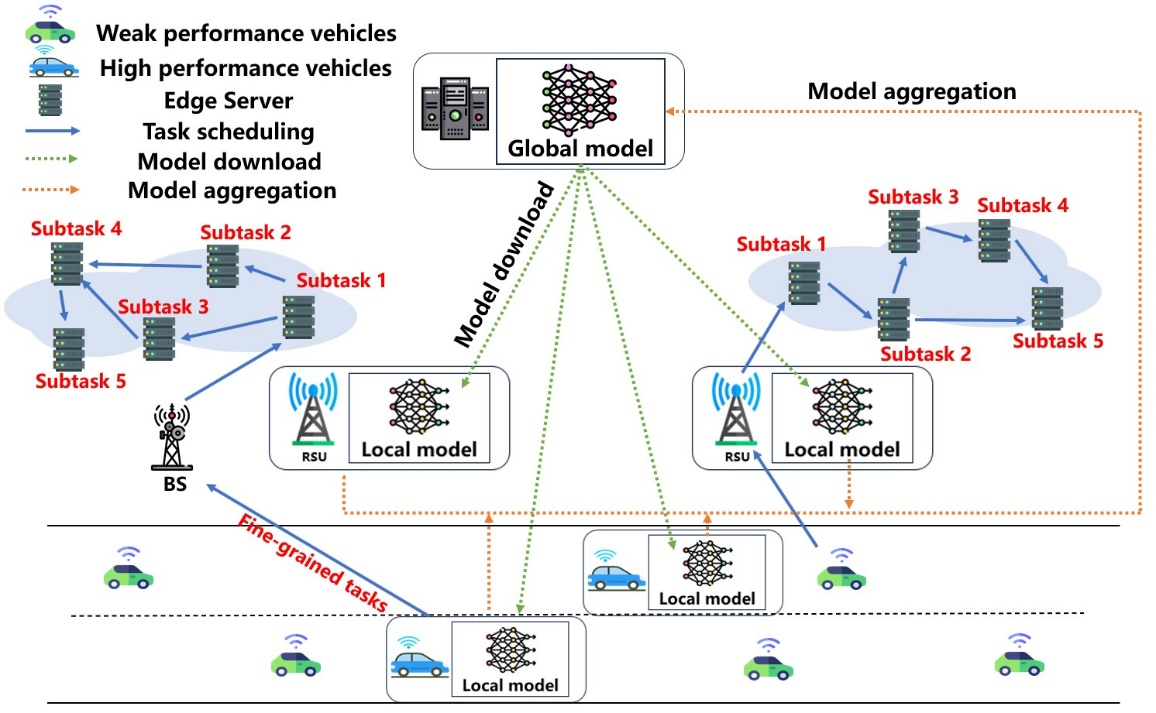Research progress on fine-grained task scheduling algorithms based on federated learning and graph neural networks in Vehicle Edge Computing
Vehicle Edge Computing (VEC) has emerged as an effective paradigm that supports real-time Intelligent Transportation Systems (ITS) by providing computing, communication, and caching resources on edge devices. ITS computation-intensive tasks, such as autonomous driving and traffic control, typically consist of multiple sequentially related computational subtasks. Selecting multiple appropriate computing nodes for these subtasks can significantly improve the response time of ITS tasks. However, due to the unique properties of vehicular networks, such as highly dynamic network topologies and uneven vehicle density distributions, data transmission and computational processing of these subtasks may experience significant delays due to unpredictable network congestion and load imbalances. Thus, ensuring the quality of service (QoS) for users within complex, dynamic vehicular edge networks and designing fine-grained task scheduling algorithms that can perceive the characteristics of tasks and vehicular edge environments becomes a challenge.

Fine-grained task scheduling scenario
The Intelligent Arithmetic Scheduling team of CNIC's Advanced Networks Division has conducted research on fine-grained task scheduling algorithms based on federated learning and graph neural networks (FL-GNN), which investigates a service scenario for scheduling fine-grained tasks in VECs, where the computational tasks are partitioned into multiple sequentially related sub-tasks that are offloaded to heterogeneous computational servers. Specifically, the resources required by the task and the task topology consisting of multiple subtasks are used as task characteristics, and the resource status of the MEC server nodes in the VEC and the compute node topology are used as VEC environment characteristics. The task scheduling model deployed on nearby roadside units (RSUs) as well as HPC vehicles accomplishes fine-grained task scheduling based on these features. In particular, due to the differences in vehicle performance, some vehicles are not suitable for deploying task scheduling models, and the team considers task scheduling approaches for weak performance computing vehicles and high performance computing vehicles separately, aiming to minimize the total delay of tasks. In addition, the team introduces a federated learning architecture to train to get a global task scheduling model with stronger generalization ability, as a way to solve the problem of high cost caused by retraining the task scheduling model when a vehicle enters a new VEC environment. The related research results have been published in the 29th IEEE International Conference on Parallel and Distributed Systems (ICPADS 2023).
For details, please contact ZHANG Gaowei (zhanggaowei@cnic.cn)
